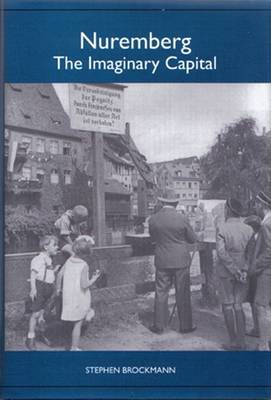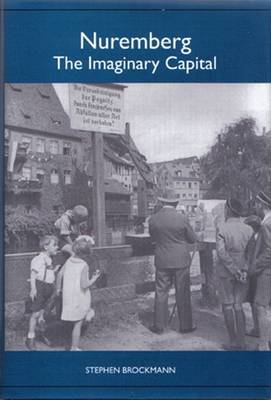
- Retrait gratuit dans votre magasin Club
- 7.000.000 titres dans notre catalogue
- Payer en toute sécurité
- Toujours un magasin près de chez vous
- Retrait gratuit dans votre magasin Club
- 7.000.0000 titres dans notre catalogue
- Payer en toute sécurité
- Toujours un magasin près de chez vous
Description
Traces the development of ideas of Nuremberg as cultural and spiritual capital, thus offering a coherent view of German cultural and intellectual history. Nuremberg: The Imaginary Capital is a broad study of German cultural history since 1500, with particular emphasis on the period since 1800. It explores the ways in which Germans have imagined Nuremberg as a cultural and spiritual capital, focusing feelings of national identity and belonging on the city -- or on their image of it. Chapters focus on the city of Dürer and Sachs at the threshold of the modern era, the glory of which became the basis forall the other imaginary Nurembergs; the Romantic rediscovery of the city in the late 18th century and the institutionalization of Nuremberg discourse through the Germanic National Museum in the mid 19th; Wagner's Meistersingervon Nürnberg, the most famous artistic invocation of the Nuremberg myth; the Nazi use and misuse of the Nuremberg myth, along with Leni Riefenstahl's film Triumph des Willens, not only the best-known Nuremberg film butalso the most significant documentary of Hitler's Third Reich; and finally the postwar development in which "Nuremberg" became the symbol of a new kind of international law and justice. Stephen Brockmann analyzes how the city came to be seen, in Germany and elsewhere, as representative of the national whole. He goes beyond the analysis of particular historical periods by showing how successive epochs and their images of Nuremberg built on those precedingthem, thus viewing German cultural and intellectual history as an intelligible unity centered around fascination and veneration for a particular city. Stephen Brockmann is Professor of German at Carnegie Mellon University. He is the recipient of the 2007 DAAD (German Academic Exchange Service) Prize for Distinguished Scholarship in German and European Studies/Humanities.
Spécifications
Parties prenantes
- Auteur(s) :
- Editeur:
Contenu
- Nombre de pages :
- 358
- Langue:
- Anglais
- Collection :
- Tome:
- n° 1
Caractéristiques
- EAN:
- 9781571133458
- Date de parution :
- 01-10-06
- Format:
- Livre relié
- Format numérique:
- Genaaid
- Dimensions :
- 160 mm x 234 mm
- Poids :
- 748 g

Les avis
Nous publions uniquement les avis qui respectent les conditions requises. Consultez nos conditions pour les avis.






